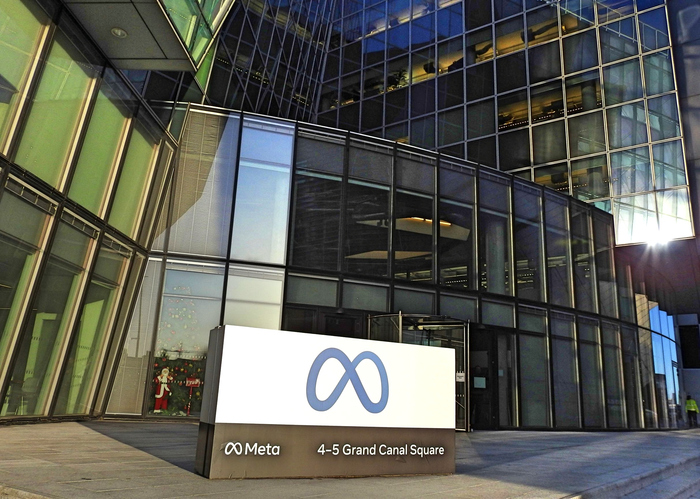Freeriding Violations and SEC Whistleblower Rewards
Those who report a freeriding violation to the SEC may become eligible for rewards paid by the Office of the Whistleblower. The sanctions ordered by the SEC must exceed $1M. More than one may qualify. Whistleblowers do not need to be employees or U.S citizens.
May 15, 2025

This information is provided for educational purposes only by Kohn, Kohn & Colapinto and does not constitute legal advice. No attorney-client relationship is created by accessing this content. Laws and regulations may change, and this material may not reflect the most current legal developments. If you believe you have a whistleblower claim, consult a qualified attorney to discuss your specific circumstances.
Those who report a freeriding violation to the SEC may become eligible for rewards paid by the Office of the Whistleblower. The sanctions ordered by the SEC must exceed $1M. More than one may qualify. Whistleblowers do not need to be employees or U.S citizens.
The range of awards is between 10% and 30% of the monies collected. The percentage awarded depends on the quality of information the whistleblower provides. If you know of a freeriding or Regulation T of the Federal Reserve Board violation, you should consider contacting an SEC whistleblower attorney to report your concerns.
Continue reading to learn more about freeriding and whistleblower rewards.
What is freeriding?
Freeriding is the illegal practice of purchasing shares or securities of a company in a cash brokerage account and then selling them before the purchase has settled. Thus, the trader pays for the shares using cash earned from the sale – not actual cash.
For example, take Hayes:
- Hayes has $0 cash available to trade in his account
- On Wednesday morning, Hayes buys $10,000 of Acme stock
- No payment is received from Hayes by Friday’s settlement date
- On Monday, Hayes sells Acme stock for $10,500 to cover the cost of his purchase
- Hayes profits $500 from the transaction
In this example above, a freeriding violation occurred because Hayes did not pay for the stock in full before selling it. In other words, he sold the shares before actually buying them.
A freeriding violation could have also occurred if Hayes took the cash earned from the sale with no intention of covering or paying for his original purchase.
This violation is an example of a small case for the SEC interested in major illegal freeriding cases that could lead to sanctions exceeding $1 million.
Real World Case
For instance, on October 31, 2022, the SEC charged incarcerated felon Syed Arham Arbab and five friends in a $2 million freeriding scheme that defrauded several broker-dealers. This case involved several people coached by Mr. Arbab on how to engage in freeriding.
The Securities and Exchange Commission says that in a cash account, traders must pay for the purchase of a stock before they can sell it. If a trader buys and sells a stock before paying for it, they are free riding, which violates the credit extension provisions of the Federal Reserve Board.
Read More:
SEC Whistleblower Program Overview: Qualifying for Rewards
Freeriding Violaton vs. Good-faith Violation
Similar to a freeriding violation is a good-faith violation. This violation occurs when a trader decides to sell a particular stock and immediately buys another stock before the first trade settles. Thus, the transaction is a violation because the sale of the first stock must settle.
For example, take Lynn:
- Lynn has $0 cash available to trade in his account
- Monday morning, Lynn sells ABC stock for $10,000 in cash
- The same afternoon, Lynn buys Acme stock for $10,000
In this example, the funds have not yet settled from the sale of ABC stock; thus, Lynn commits a good-faith violation the moment she purchases Acme stock.
So what’s the difference between freeriding and good-faith violations? In the freeriding example, Hayes started with $0 in cash and no stocks to sell, thus “freeriding” off broker-dealer cash.
In the good-faith violation example, Lynn had the cash to purchase the second stock. However, she did not allow the money from the first sale to settle before making the purchase.
Lynn should have waited a trading day and two additional days to make the second trade or deposited cash into her account to cover the trade.
Freeriding Violations and Whistleblower Rewards
Whistleblowers who know of a freeriding scheme may file claims anonymously and apply for rewards with the help of an experienced SEC whistleblower attorney. Awards range between 10% and 30% of the monies collected. Award percentages depend on the quality of the information provided by the whistleblower.
Whistleblowers must hire an attorney to file anonymously and apply for rewards. But there are some benefits, such as accurate claim filing, whistleblower protection, and SEC enforcement if a whistleblower is experiencing retaliation.
Below are the steps to receiving a reward for reporting freeriding:
- Hire an SEC Attorney – once a whistleblower is sure the information they have is strong and credible and decides to come forward, they should contact a whistleblower attorney to help assist them in the complaint and award process moving forward.
- Collect Evidence – collect as much evidence as possible, including any documents or transactions that might point to a clear freeriding scheme. The evidence you collect must be compelling enough for the SEC to act.
- Sign Form TCR – With an attorney’s assistance, whistleblowers should complete the tips, complaints, and referrals form. The form provides the SEC with critical information about the scheme and any attachments. *Optionally, you can file the form using the SEC website. However, you will need to provide your identity, as the SEC can’t work with (and reward) whistleblowers if they do not know how to correspond with them.
- Investigation – once the TCR form is submitted, the whistleblower can maintain their anonymity throughout the investigation. However, if the SEC sanctions the fraudster for over $1 million, the whistleblower must file a Whistleblower Award Application or Form WB-APP. This form is a request for the payment of an award for the information provided, and the whistleblower may have to identify themself.
- Award Application – The SEC will require personal information about the whistleblower with the Form WB-APP. This information will include their identity and proof that the whistleblower provided their attorney with the signed TCR form.
Payments to whistleblowers come from an investor protection fund established by Congress and funded through monetary sanctions paid to the SEC by securities law violators. No money has been taken or withheld from harmed investors to pay whistleblower awards.
Read more:
SEC Whistleblower Program Overview: Qualifying for Rewards
Frequently Asked Questions
Frequently Asked Questions
Our Firm’s Cases

Environment & Human Rights Violations Exposed
Oil industry’s environmental crimes and cover-up in Colombia have been exposed. Whistleblower Andrés Olarte Peña, with the support of his attorneys Kohn, Kohn & Colapinto and the damning evidence compiled in the Iguana Papers, is calling for an investigation into Ecopetrol and its executives by the Colombian government and the U.S. Securities and Exchange Commission.

$30 Million Award
Protecting the confidentiality of Wall Street whistleblowers is among the most important breakthroughs in federal whistleblower law. Under the Dodd-Frank Act, whistleblowers can file anonymous cases, and everything about their case, including who they sued, remains secret.

$13.5 Million Award
Our firm represented an anonymous whistleblower, who on May 17, 2021, received a whistleblower award of almost $13.5 million. The SEC has issued more than $31 million in whistleblower awards related to this case.
![Reporting Recordkeeping Failures To The Sec [2025 Guide]](https://kkc.com/wp-content/uploads/2025/01/Recordkeeping-Failures.jpg)




